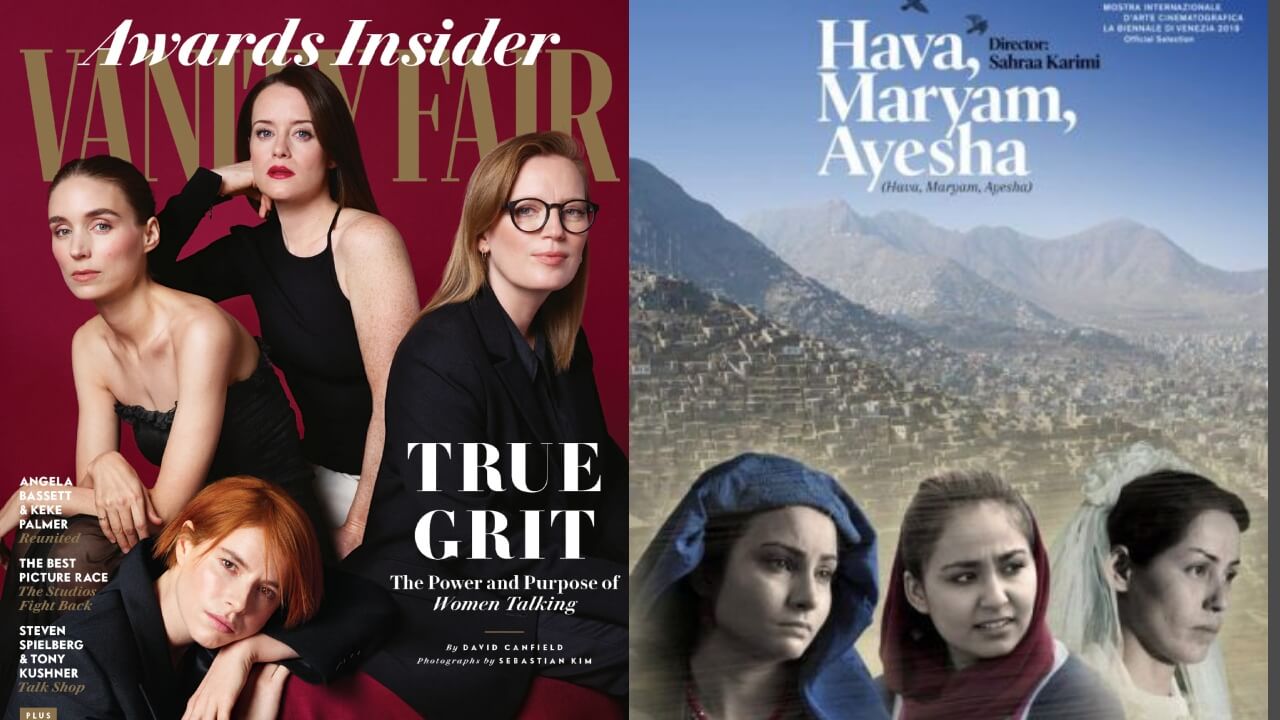For cinema to truly empower any section community or gender, the root-cause of the rot and disempowerment must be addressed pointblank. Two contemporary films , one American the other from Afghanistan, chronicling the fate of kindred women in bigoted patriarchal communities, should be on every movie buff’s must-list.
Sarah Polley’s Women Talking is just what it says it is. There are women of every age, talking.What they say changes our perspective on oppressive society. In fact, so damning and dreadful are the things that these women from an intolerably oppressive backwater community in contemporary America(2010) speak , that we are often made to feel like a guilty participant rather than a detached spectator.
They behave and project a muted anguish that belongs to an era either in the remote past or in a bleak future, something like Margaret Atwood’s The Handmaid’s Tale but a lot less pale, far more defined and qualified by the colours of rebellion.
Women Talking is a pleasure to behold for many reasons,not the least of those being the gallery gorgeous actresses caught by cinematographer Luc Montpellier in the sepia colours of a fading light. The women are almost Ingmar Bergmanesque in their burnished beauty.The actresses are so beautiful in their poignant condition I instantly knew what ‘tragic grandeur’ meant. Each one Rooney Mara, Claire Foy, Jessie Buckley, Judith Ivey, Sheila MccArthy , Michelle Mcleod and Frances McDormand—are captured in the captive positions. They are all victims and yet they are not going to remain so for long.I felt a little more protective towards Jesse Buckley; unlike the other women she wore her wounds on her face.
Women Talking is about rising from the ashes. It brims over with an unstated rage of women of every age from 70 to 9 who are drugged and raped.We see none of the brutality(thank God!). But we feel these women’s pain shooting up our sensitivities and daring us to not respond.
A raging pounding masterpiece Women Talking is the closest thing I have seen on screen to poetry on motion. Although the women speak in prose their predicament is rendered in a poetic tone.This not-to-be-missed saga of abuse and violence (with one very gentle and sensitive, almost emasculated male character) will stay with you for a very long time.And if you are a male it may be a while before you can look into the mirror without flinching.
Sahra Karimi’s Hava, Maryam, Ayesha about three pregnant women grappling oppression in Afghanistan was shot clandestinely in its country.It is a straightforward unvarnished look at life for women in an oppressive society. There are three sections each devoted to one of them. Hava(Arezoo Ariapoor)’s plight is the bleakest. Pregnant and uncared, she toils from early morning till late night caring for her ailing paralyzed mother-in-law, taunting father-in-law and a husband who asks her to cook up a feast for his friends within hours. Breathy and on the verge of collapse, Hava’s life makes us cringe in shame and shock.
Maryam’s story is the weakest of the three in Hava, Maryam, Ayesha. Perhaps because Maryam is far more privileged and empowered than Hava. Maryam(Fereshta Afshar) has a high-profile job where she fights male attention well enough. She is pregnant, like the other two protagonists of this cheerless drama behind the purdah of perdition. But her constant anger and recrimination against her cheating partner over the phone, not to mention the ostentatious smoking, gets oppressive for the audience to watch.
The third story about a teenage girl Ayesha (Hasiba Ebrahimi) desperately seeking an illegal abortion before her arranged marriage, possesses a unpunctuated energy. The everyday sights and sounds of Kabul are bottled in the fumes of violence and brutality that we never see but feel everywhere.
Hava Maryam & Ayesha was selected as Afghanistan’s entry into the Oscars but rejected on a technicality. You could say, ill-luck prejudice and segregation run deep in Talibanized societies.


